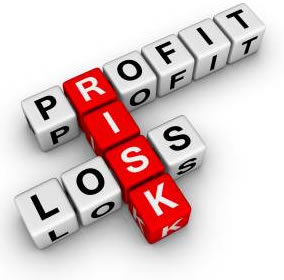The Law of Diminishing Returns: Healthy vs. Unhealthy Perfectionism
As a dedicated binary options trader, you are constantly working your way up a learning curve that never ends. Even after months or years in the business, you will continue to read books, work on systems, and develop new techniques for success. Along the way, you will put in a lot of detailed and intensive work on specific aspects of your trading. For most binary options traders, that detailed work goes into creating or fine-tuning trading systems.
Your binary options trading system is what allows you to get an edge over other traders and make money consistently and reliably. The performance of your system is relative to the power of the system itself, though. A mediocre system will only produce mediocre profits. And every profit percentage counts. If you have a system that produces profits 70% of the time, that is great. But 71% is even better, and 72% is even better than that. And with enough fine-tuning, you may even be able to get that same system to produce 80% or 85%.
Striving to make something better and better is a good thing, but are you a perfectionist?
What is Perfectionism?
Perfectionism: In psychology, a personality trait characterized by a person’s striving for flawlessness and setting excessively high performance standards, accompanied by overly critical self-evaluations.
This is an overtly negative definition. Recently I ran into another trader differentiating between healthy and unhealthy perfectionism.
Healthy perfectionism: When the payoffs exceed the costs. Expectations may be high, but can be met.
Unhealthy perfectionism: When the costs exceed the payoffs. Expectations are unrealistically high, and cannot be met.
These definitions offer a frame of reference that is arguably much more useful than the general negative definition for perfectionism. Previously, I have talked about how strengths and weaknesses are often two sides of a single coin. A lot of perfectionists will argue that they are committed to improvement and are able to put in ongoing, dedicated effort. Those are positive traits after all, and what is the alternative? To give up, to let mistakes linger, to accept less than the best?
I think it is important for a perfectionist to recognize that they have both positive and negative qualities feeding into their behavior, and that perfectionism by itself is not necessarily a positive or negative. It is a question as to whether those behaviors are in balance or not, and whether the perfectionism is healthy or unhealthy.
The Law of Diminishing Returns
Usually when we talk about economics in reference to trading binary options, we are talking about events that move the market, financial reports, and fundamental analysis. That isn’t the only thing you can learn from economics, however. One basic economic principle is great for helping you evaluate your own ongoing efforts as a trader. Take a moment and think back to high-school economics class. One thing you might remember is the “law of diminishing returns,” also known as the “law of variable proportions,” or “principle of diminishing marginal productivity.”
The law of diminishing returns states that if you continue to add a factor of production while holding the rest constant, eventually you will start yielding lower and lower per-unit returns on your efforts.
In other words, the more you hack away at one aspect of your trading method trying to perfect it, the less positive change you are actually going to see reflected in your results as time goes by.
To understand this more clearly, let’s take an example.
 Pete the Perfectionist
Pete the Perfectionist
Pete has been working on a binary options trading system that uses technical analysis for a number of months now. His win percentage has been steadily increasing with each test he runs. His first win percentage was 65%. His second was 68%. His third was 73%. His fourth was 76%. With each change he makes to each element he is working on, he sees excellent results. Pete is feeling pretty awesome about his testing.
At this point in time, Pete is doing a great job. He is diligently going over his system and test results again and again and making changes which are improving his results systematically. Because he is continuing to make progress, he keeps working hard. His expectations are high, but they can be met. His payoffs are exceeding his costs. The effort he is putting in is yielding substantial positive change. Pete is at this point in time a healthy perfectionist. His perfectionism is in balance.
Say a few more months go by in our example, and Pete’s experiences start to change:
 Pete has been struggling to improve his system, and he is seeing very minor improvements. He has run a number of tests, and his win percentage has crawled up from 76% to 77%. Pete has invested the same amount of time and energy into this outcome as he did when he brought his system up from 65% to 76%. The first time around, though, his win percentage moved up substantially. He is still improving his system, but at this point he is pouring in a lot more energy and time for a much smaller result. Pete is determined to bring his system up to 80% before he goes live.
Pete has been struggling to improve his system, and he is seeing very minor improvements. He has run a number of tests, and his win percentage has crawled up from 76% to 77%. Pete has invested the same amount of time and energy into this outcome as he did when he brought his system up from 65% to 76%. The first time around, though, his win percentage moved up substantially. He is still improving his system, but at this point he is pouring in a lot more energy and time for a much smaller result. Pete is determined to bring his system up to 80% before he goes live.
At this point, Pete’s testing activities have become subject to the law of diminishing returns. This is true whether he is continually trying to improve one aspect of the system or several. His efforts, in context, are yielding significantly less than they did previously. He is no longer using his energy with maximum efficiency. His goal of 80% is laudable, but it is also unrealistic. The payoffs are now exceeded by the costs, and he is unlikely to achieve the 80% if nothing else changes. Even if he does, he will waste a lot of time doing it that he could be spending making substantial progress on some other aspect of his trading or life at large.
This is a really frustrating point to reach when you are trying to become a professional binary options trader. On one hand you do not feel ready, and you feel like you need to put in more effort in order to go live. You do not want to be irresponsible and make bad trading decisions when you could just be patient and keep trying. On the other hand, you are starting to suspect that you actually are just making up excuses for why you are not jumping in there already and taking a risk. Things are never going to be perfect. Despite this, you still may feel tempted to continue with your path of diminishing returns and unhealthy perfectionism. After all, what can be worse than trading before you are ready and losing money?
What to Do When Costs Outweigh Returns
If you are in a situation like Pete’s, what do you do? You have a few different options:
Try to list factors you may not have analyzed. Is there some aspect of your trading method you have not tried changing? Have you considered the context of your trades fully? Is there some other way in which you could make progress with your system that you have not thought of before? Are you adjusting one element over and over again while ignoring another? Could you test out your system on a different asset? A different time frame? Would it be helpful to add or subtract something?
Should you toss the system? Be very cautious about this option. A common pattern for frustrated traders at this point is to start trying system after system, hoping they will eventually find one that meets their high expectations. Sometimes those expectations are just unreasonable. If you have a system that is performing profitably, you should consider sticking with it. Otherwise you may enter a whole new realm of diminishing returns!
Should you simply start trading? Do you really have a problem, or are you simply being overly demanding of yourself? Again, ask yourself if your trading method is profitable enough. Maybe you would rather have 80% than 77%, but can you realistically profit with 77% consistently and reliably? If so, maybe it is time to take the leap you are putting off. Start trading live and see what happens. You can continue running tests on the side.
Ask for help. Part of the law of diminishing returns is the “all else being equal” clause. Returns will continue to diminish if you keep working on the problem without changing the context or other elements you haven’t touched. If you are at a loss for how you could tackle the problem from a different angle or change the conditions of the tests, one thing you can do to immediately change the situation in a meaningful way is bring someone else on board. Post your problem on a forum and ask for ideas. Doing this changes the context for the problem of the diminishing returns, and sometimes someone else will be able to give you the idea you need to start making progress again.
Perfectionism can be a dangerous trait for a binary options trader when it gets out of balance and results in the law of diminishing returns. The law of diminishing returns is a great tool because it allows you to quickly and easily analyze your situation and ask yourself whether your perfectionism is in or out of balance. If you are maintaining realistic expectations and are achieving significant returns on your efforts, your healthy perfectionism is acting as a strength. If however your expectations are unrealistic and you are achieving only marginal returns for your efforts, your perfection has become unhealthy and has turned into a weakness. If you suspect this is happening, tackle the problem from a new point of view—if you even really have a problem. If you do not, maybe it is time to start trading live!